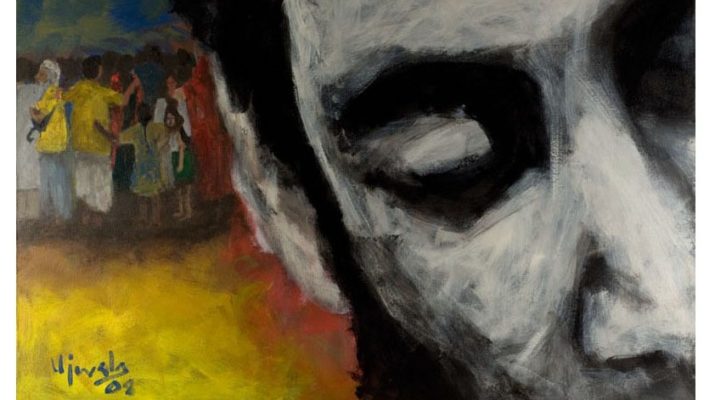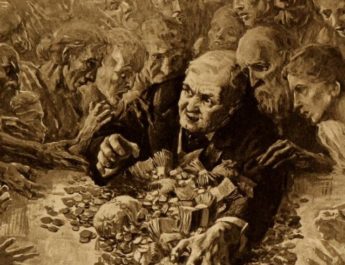2 Corinthians 4:7-12
A Women’s Lectionary 24
7 But we have this treasureA in clayB jars,C
A “treasure” = thesauros. 17x in NT. From tithemi (to place, lay, set, establish). This is treasure, storehouse, deposit. It can be used figuratively for treasured thoughts.
B “clay” = ostrakinos. 2x in NT. From ostracon (clay vessel). This is made of clay, earthen pottery. Figuratively, it can mean frail. It shares a root with the word “ostracize.”
C “jars” = skeuos. This is a vessel, object, article, property, a tool. It is an implement or other equipment in a literal or figurative sense. It could also refer to a vessel of mercy or a wife.
so that it may be made clear that this extraordinaryD powerE belongsF to GodG and does not come from us.
D “extraordinary” = huperbole. 8x in NT. From huperballo (to surpass, exceed, or excel; properly, to throw beyond or run beyond; transcending, eminent, or surpassing); {from huper (over, above, beyond) + ballo (to throw, cast, place, put, rush, drop)}. This is excess, surpassing, exceedingly. Properly, it means to throw past so it can also mean abundance or preeminence. It is where the word “hyperbole” comes from.
E “power” = dunamis. From dunamai (to be able, have power or ability). This is might, strength, physical power, efficacy, energy, and miraculous power. It is force literally or figuratively – the power of a miracle or the miracle itself.
F “belongs” = eimi. This is to be or exist.
G “God” = Theos. From Proto-Indo-European origins, meaning do, put, place. This is God or a god in general.
8 We are afflictedH in everyI way, but not crushed;J perplexed,K but not driven to despair;L
H “are afflicted” = thlibo. 10x in NT. Perhaps from tribos (worn track or path like a rut that is formed from rubbing i.e. steady use; also road or highway); from tribo (to rub or thresh). This is to press in on and make narrow, rub together, constrict. Figuratively, it is to oppress or afflict.
I “every” = pas. This is all or every.
J “crushed” = stenochoreo. 3x in NT. From stenos (narrow, confined, constricted; confined because of obstacles); {probably from histemi (to stand, place, set up, establish, stand ready, stand firm, be steadfast)} + choreo (to make space, receive, have room for, progress, depart so as to make room; figuratively, living open-heartedly); {from choros (a particular space or place); from chora (space, land, region, fields, open area); from chasma (gap, gulf, chasm, open space); from chasko (to gape, yawn)}. This is to restrict, press in on, cramp, withhold affection, distress.
K “perplexed” = aporeo. 6x in NT. From a (not) + poros (way, resource, passageway); {related to poreuomai (to go, travel, journey, or die; transporting things from one place to another and focuses on the personal significance of the destination)}. This is feeling like you have no way out, being perplexed or doubting.
L “driven to despair” = exaporeo. Related to “perplexed” in v8. 2x in NT. From ek (from, from out of) + aporeo (see note K above). This is to be in despair, at a loss. It is to have no way out or no tools to make a next move.
9 persecuted,M but not forsaken;N struck down,O but not destroyed;P
M “persecuted” = dioko. From dio (put to flight). This is chase or pursue in an aggressive fashion. By implication, it is persecute. It can also be used positively for eagerly pursuing something.
N “forsaken” = egkataleipo. From en (in, on, at, by, with) + kataleipo (to leave or leave behind, abandon, forsake, leave in reserve); {from kata (down, against, throughout, among) + leipo (to leave behind, remain, lack, abandon, fall behind while racing)}. This is left behind, left as a remainder, desert, forsake. Properly, it means to leave someone or something wanting or lacking – so, to forsake or cause someone to be helpless in a serious scenario.
O “struck down” = kataballo. Related to “extraordinary” in v7. 2x in NT. From kata (down, against, throughout, among) + ballo (see note D above). This is to cast down, lay prostate, set a foundation.
P “destroyed” = apollumi. From apo (from, away from) + ollumi (to destroy or ruin; the loss that comes from a major ruination). This is to destroy, cut off, to perish – perhaps violently. It can also mean to cancel or remove.
10 alwaysQ carryingR in the bodyS
Q “always” = pantote. Related to “every” in v8. From pas (see note I above) + tote (then, whether past or future); {from hote (when); from ho (the)}. This is literally every when. It is always, at all times.
R “carrying” = periphero. 3x in NT. From peri (about, concerning, around, encompassing) + phero (to bear, bring, lead, make known publicly; to carry in a literal or figurative sense). This is to carry around, transport, or be driven about.
S “body” = soma. Perhaps from sozo (to save, heal, rescue); from sos (safe, well, rescued). This is body or flesh. It can be body in a literal or figurative sense (as the body of Christ). This is where the word “somatic” comes from.
the deathT of Jesus,U so that the lifeV of Jesus may also be made visibleW in our bodies.
T “death” = nekrosis. 2x in NT. From nekroo (put to death, render someone like the dead or powerless; figuratively, subdue); from nekros (dead or lifeless, mortal, corpse; figuratively, powerless or ineffective); from the same as nekus (corpse). This is the condition of death or, figuratively, impotency. It is where the word “necrosis” comes from.
U “Jesus” = Iesous. From Hebrew Yehoshua (Joshua, the Lord is salvation); {from YHVH (proper name of the God of Israel; the self-existent and eternal one); {from havah (to become) or from hayah (to come to pass, become, be)} + yasha (to deliver, defend, help, preserve, rescue; properly, to be open, wide or free, which implies being safe. So, in a causative sense, this is to free someone)}. This is Jesus or Joshua in Greek – the Lord saves or the Lord is salvation.
V “life” = zoe. From zao (to live, be alive). This is life including the vitality of humans, plants, and animals – it is life physical and spiritual and life everlasting.
W “made visible” = phaneroo. From phaneros (visible, apparent, clear, shining); from phos (light, a source of light, fire, or radiance; light with specific reference to what it reveals; luminousness whether natural or artificial, abstract or concrete, literal or figurative); from phao (to shine or make visible, especially with rays of light); from the same as phaino (to bring light, cause to appear, shine, become visible or clear). This is to make visible or clear, to make known. Properly, it is to illumine and so to make apparent or bring into open view.
11 For while we live,X we are alwaysY being given upZ to deathAA for Jesus’ sake,
X “live” = zao. Related to “life” in v10. See note V above.
Y “always” = aei. 7x in NT. This is ever, always, unceasingly, perpetually, on every occasion.
Z “given up” = paradidomi. From para (from beside, by) + didomi (give, offer, place, bestow, deliver; give in a literal or figurative sense). This is literally to hand over – hence to deliver, abandon, or betray. It implies a personal involvement.
AA “death” = thanatos. From thnesko (to die, be dead). This is death, whether literal or spiritual. It can also refer to something that is fatal.
so that the life of Jesus may be made visible in our mortalBB flesh.CC 12 So deathDD is at workEE in us, but life in you.
BB “mortal” = thnetos. Related to “death” in v11. 6x in NT. From thnesko (see note AA above). This is one who can die, mortality itself.
CC “flesh” = sarx. May be from saroo (to sweep, cleanse by sweeping); from sairo (to brush off). This is flesh, the body, human nature, materiality, kindred. Flesh is not always evil in scripture (as when it refers to Jesus taking on a human body). However, it is generally used in a negative way for actions made selfishly and not through faith. This can mean animal flesh, i.e. meat, or refer to body in contrast to soul/spirit. Flesh can be a way of talking about how things or people are related or talking about human frailty (physical or moral).
DD “death” = thanatos. Same as “death” in v11. See note AA above.
EE “is at work” = energeo. From energes (active, effective, operative, energized, powerful); {from en (in, at, by, with, among) + ergon (word, task, action, employment); {from ergo (to work, accomplish) or from erdo (to do)}}. This is to be at work, accomplish, be mighty or effectual. This is where “energy” comes from.
Image credit: “Ekla cholo re” by Ujwala Prabhu, 2009.




